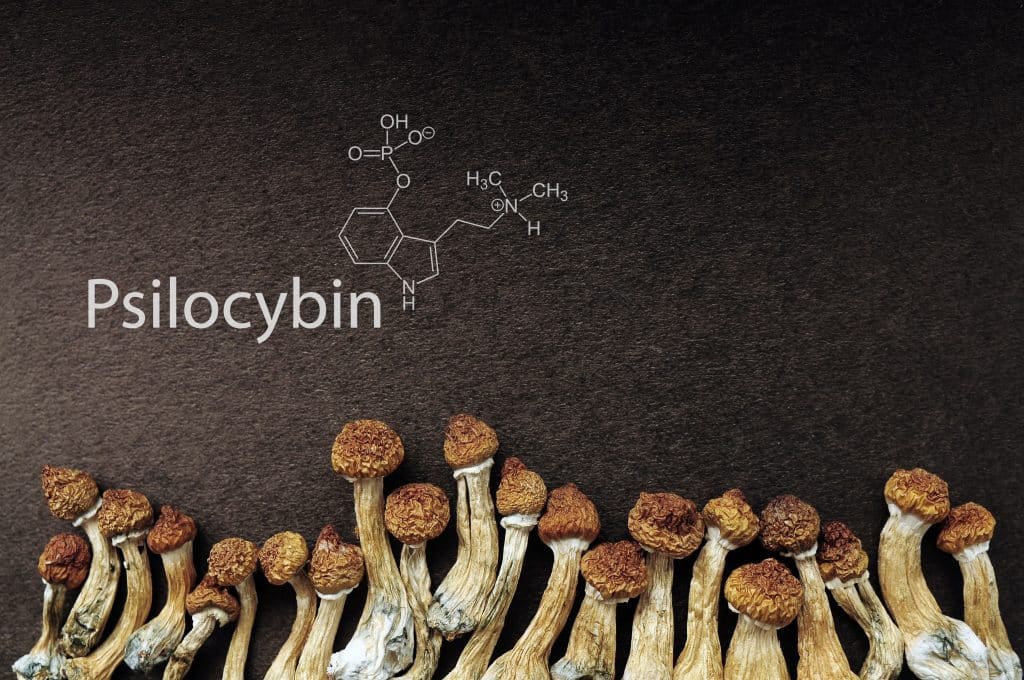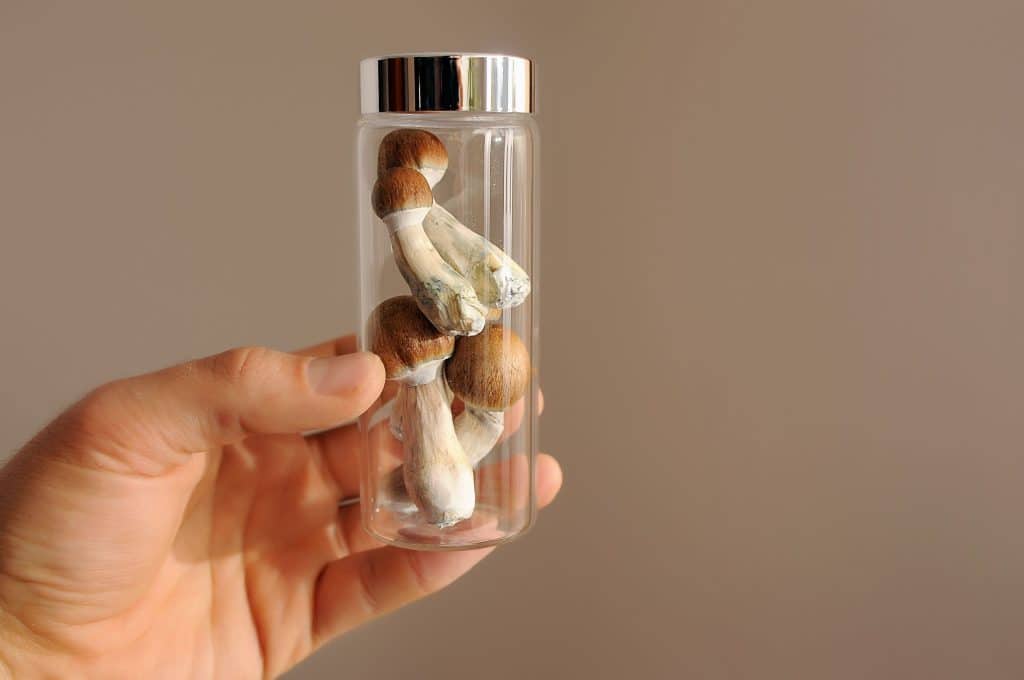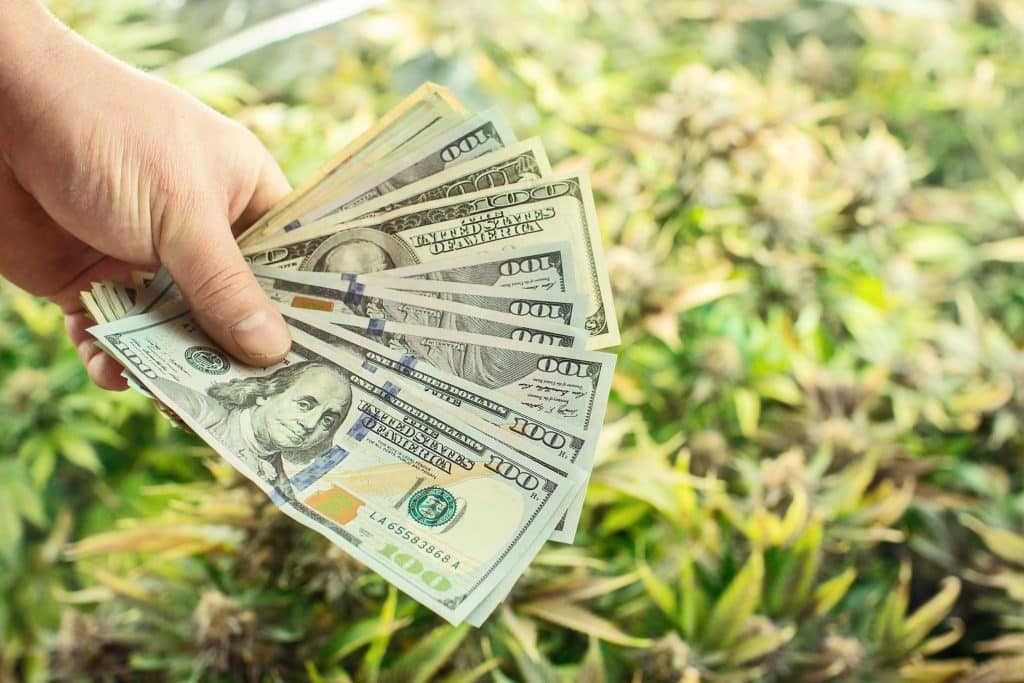We’ve been talking about it for a while, and speculating on what to expect. Even as the cannabis industry takes a nose dive due to high regulatory and tax costs, it seems no lesson was learned for the legal psychedelics industry. Something made clear when an Oregon company released information for the first magic mushroom center; which is incredibly expensive.
The first Oregon psilocybin treatment center is expensive
There was a lot of speculation in the last year, and particularly in the last several months; as Oregon slowly unraveled its regulatory plans for its voted-in psychedelics industry. And the reality is now here, that this new magic mushroom industry will be quite expensive for users. Recently, information came out for Eugene Psychedelic Integration Center (EPIC Healing Eugene), the first facility to receive a license to provide services.
And, as stated, it’s not exactly cheap. One session will run a person $2,800 for 2 ½ grams, and for a four-gram sessions? That’ll cost about $3,500. The difference here is 1 ½ grams of mushrooms, which equals an increase of $700. No matter how you look at it, these are not prices everyone can drop for a treatment.
What’s more? Not only is this cost already high, but medical insurance won’t cover it, not at EPIC, and not with most insurers until more inroads are made federally. Which means those who want services must pay this amount without any reimbursement. Overall prices do vary based on the amount of mushrooms used, and the amount of people (group or individual), but regardless, the new magic mushroom industry in Oregon, is expensive.

Why is the magic mushroom industry in Oregon so expensive?
These costs, are at least in part because of expensive regulatory measures put on the magic mushroom industry by Oregon regulators. EPIC’s founder Cathy Rosewell Jonas told Williamette Week that she was required to pay $12,000 just to get certified, as well as a $10,000 annual fee, and a $60,000 insurance fee. That means, just to get going, Jonas has to pay out a whopping $82,000 on top of regular costs.
Beyond what she’s paying out to have the business, she also can’t make deductions for income tax for standard things like rent, which other business-owners can. This is because psilocybin is still Schedule I in terms of the federal government, and therefore illegal. In fact, Jonas falls into the same problem area as cannabis companies which operate similarly, with the same federal tax issue. She cannot make standard deductions, which means overpaying in taxes to the federal government. For those paying attention, it means the federal government most certainly collects tax money, while considering the industry illegal.
It does so by way of Section 280E in the country’s tax code. This law is applied to traffickers of Schedule I and II substances, and is meant to ensure such traffickers can’t make standard deductions. Just like with cannabis markets, this is not real trafficking though. The industries are 100% legal within their states, which means this is just another form of bullying by the US government. This, in turn, forces Jonas to set prices at 30% higher to make up for these expenses. In fact, for about every $3,000 charged, about $1,000 must be reserved for the federal government…which is quite a bit considering the entity is not ‘officially’ taxing the market.
Then added on to everything else, is the price of the therapists. A prospective client must first undergo both a screening, and three prep sessions, before the actual treatment. And then that’s followed by integration sessions after. The therapists for these sessions generally charge approximately $150 to $200 an hour, as per Therapsil, which must be factored into the overall cost.
Is this worth it?
We can see from the costs that EPIC must pay, that there are some steep regulatory and tax amounts tied to running a magic mushroom service center, and the result is that this first center in Oregon, is rather expensive for consumers. Should we expect people to pay this bill? And is it even worth it?
The Psychedelics Spotlight article that relayed the information, makes the point that regular treatment for depression can also be expensive. It speaks of medication costs, for both brand name and generic as costing approximately $62.50 (generic) up to $700 (brand name) monthly. But realistically, these are generally covered by insurance, so the patient will likely only pay a copay, or have the option of a less expensive medication.

In terms of the cost of actual therapy sessions, its true that this isn’t cheap either when adding up for a year, but this is also often covered. All these costs against one session, (or a few sessions), of mushroom treatment, are still likely way less. And payed in small increments around the year, not all at once. However, having said that, the problem with these other therapeutic avenues, is that if they had actually worked, the person in question probably wouldn’t be seeking out mushroom therapy.
A person paying standard therapy costs (or who has them covered), and who then resorts to mushroom therapy, is essentially saying that all those costs added up to nothing. In this way, mushrooms therapy is the more cost-effective option for actual results – assuming it works.
But there’s something to remember here. It’s not like a person needs to go to an office-like place to get high on something they can get high on at home, and for way less money. No matter how you excuse the costs, or try to compare them, the same thing is coming up here, which comes up in both the weed and ketamine industries; that high prices are driving the industry down. One session at EPIC is between $2,800 and $3,500 for 2.5-4 grams.
But an eighth on the street (3.5 grams) averages at about $30-40. Which would you rather pay? Which would most people rather pay? What can most people pay? Regardless of trying to compare a mushroom treatment to yearly costs of antidepressants and therapy, the reality is that the same thing that would cost thousands in a strange setting, can be under $100 in a comfortable one, of a person’s choosing.
This is seen with weed and ketamine too
The weirdest thing about this happening, is that it shows an almost brazen inability to learn from experience from a government perspective, even as a comparable situation of pricing plays out in front of us all. Sure, it looked for a moment like the weed industry was going to take off to unimaginable levels, but the unimaginable levels, in the end, turned out to be unimaginably low.
There was a good trajectory early on, but then things like overproduction happened, and the black market caught on to all the cool new things like vapes and gummies; offering more extensive and powerful products than what legal operators can. And the extreme taxes and regulatory costs sunk tons of businesses, with more on the way. All this led to the real reality now, that people aren’t going to pay inflated costs, for something they can get cheaper…or even grow on their own.

California made a big deal of finally changing its tax structure, when the market started really tanking out last year. So what did the state do? It did nix a cultivation tax, but did nothing to get rid of the 15% excise tax. That means, on top of any other taxes, like sales tax, cannabis is automatically going to be about 15% higher when coming from a legal location. The changes have done almost nothing to help the state’s industry, which posted losses for the first time in 2022. The state’s next move now? To root out corruption, rather than simply stop unnecessary taxes (much relating to sin taxes).
The ketamine market is experiencing a similar issue. Let’s remember, ketamine gets about the same result as magic mushrooms; it’s a comparable treatment. Unlike magic mushrooms, the industry operates in a gray market. The drug can be prescribed and used legally for pain and emotional issues throughout the US, as off-label uses; but the industry doesn’t get the heavy excise taxes of ‘legal’ industries like weed and mushrooms. As a Schedule III substance, its also not beholden to Section 280E restrictions on deductions.
Even so, the idea of greed is heavy, and what could have been a cheaply-priced industry, instead charges several hundred for a single treatment, and often groups them together in packages that cost thousands. This is still (sometimes) less than mushroom therapy, but its high enough that this industry is having grave issues with sustainability, due to the high costs. And in this case, without the same overhead factors (though it does have to bow to other medical regulation). This should have been a lesson for the magic mushroom industry.
The ketamine reality is that according to the site drugs.com, you can get 200ml for $167.80, and this is 10mg per ml. Most people require about .1-.5mg/kg for a treatment, so if a person weighs 160 lbs, that converts to about 72.5kg. If the person requires on the higher end, it would mean something like 36.25mg, roughly 3.5 ml. Which means that 200ml is good for many, many treatments (like more than 50). And that means the costs in a clinic, are laughable at best.
Conclusion
What should we realistically expect from magic mushroom industries like the new expensive one starting up in Oregon? If it’s anything like its predecessors cannabis and ketamine, probably not what industry officials are hoping for. In fact, it’ll probably just empower the black market. And whereas with weed, maybe some excuses could be made; this time around, the lack of ability for this to work, is squarely on regulators for not learning from the past.
Welcome everyone. Thanks for dropping by Cannadelics.com; a news platform focused on reporting the best stories in the cannabis and hallucinogen spaces. Come our way daily to stay on top of everything, and subscribe to the Cannadelics Weekly Newsletter, to ensure you always know what’s going on.









